Villa Aurora Events Archive
2021
Gewand in drei Akten - Artist Talk
Online
Information
We present an artist talk by Villa Aurora Alumna Stef Heidhues and curator Jan Maruhn as part of the exhibition Gewand in drei Akten at the Mies van der Rohe Haus in Berlin. The exhibition marks the beginning of the series Space - Time - Odyssey, with which the Mies van der Rohe Haus celebrates the 135th birthday of the world-famous architect. It deals with the tense relationship between the architectural and the corporal space in his buildings. Due to COVID-19, the exhibition is currently not open to the public.
In Gewand in drei Akten, two Mies locations in Berlin, Haus Perls and Haus Lemke, and two protagonists of modernism, Mies van der Rohe and Max Pechstein, are set in dialogue. The building owner Martha Lemke also comes to life in a journey through time that leads from an image to a dress. A photograph by Bauhaus student Howard Dearstyne was the basis for the reinterpretation of one of her dresses. The artist Stef Heidhues brings the current time horizon into play: In her work, untitled (white shape) she plays with elements of form and design from modernism. She critically combines them into new arrangements in space.
Partner
A cooperation with Mies van der Rohe Haus
Virtual Villa Aurora Tour
Online
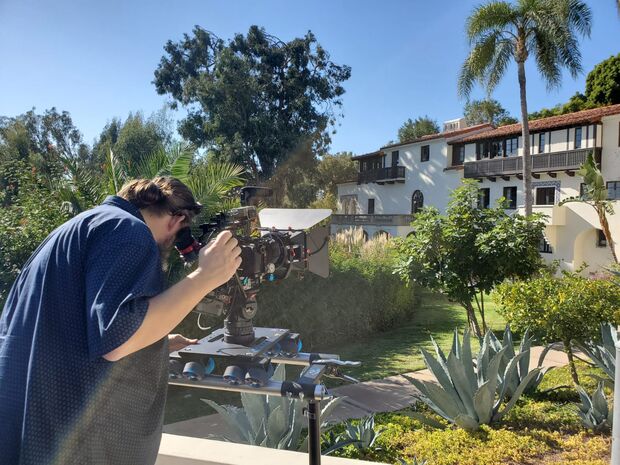
Information
Hear background information and anecdotes of one of the world's most inspiring artists residences for visual artists, composers/musicians, filmmakers, and writers comfortably from home:
Partner
The Villa Aurora Tour is a cooperation between Villa Aurora and USC Libraries

Reading and Discussion with Alexis Landau and Michaela Ullmann
Online
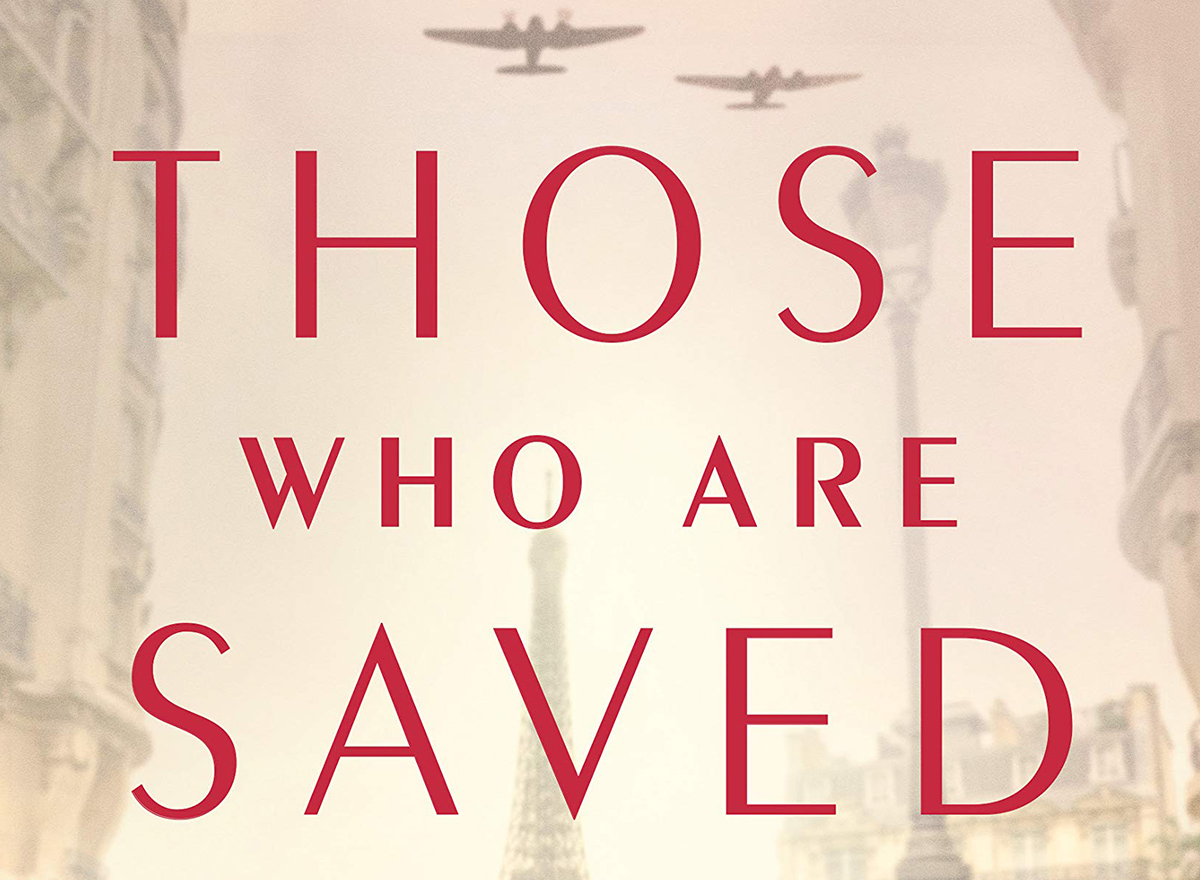
Information
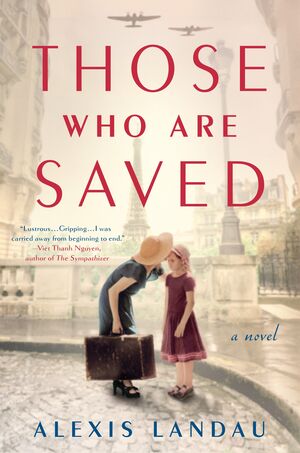
Advance Praise for "Those Who Are Saved"
“Lustrous prose and tight pacing….Those Who Are Saved binds the reader into a story of maternal love, erotic desire, and sweeping romance. I was carried away from beginning to end.” —Viet Thanh Nguyen, author of The Sympathizer
“Subtle and skilful….Absolutely haunting.” —Frances Liardet, author of We Must Be Brave
- “Powerful…Landau brilliantly explores the blurred lines between good and evil as the characters wrestle with their own dire decisions and the choices of those they love. Once this magnetic book takes hold, it doesn’t let go.” —Publishers Weekly, starred review
“A major novel, richy imagined.” —Jewish Book Council
This event will be available for streaming at noon, March 24th on Villa Aurora's YouTube channel.
Participants
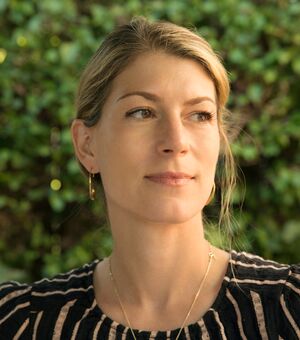
Alexis Landau is a graduate of Vassar College and holds an MFA from Emerson College and a PhD in English Literature and Creative Writing from the University of Southern California. She was born in Los Angeles and has been fascinated by the European artists and intellectuals who found refuge in “Weimar by the Sea” from an early age. This community is the setting of her second novel “Those Who Are Saved” (G. P. Putnam’s Sons, 2021), in which Villa Aurora is featured prominently.
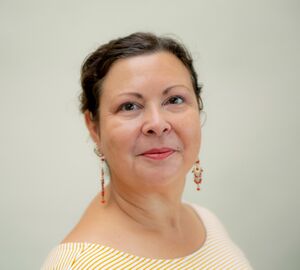
Michaela Ullmann is the Exile Studies Librarian and Instruction Coordinator at USC Libraries’ Department of Special Collections. She holds an M.A. in Cultural Anthropology and Archaeology from University of Bonn, and an M.A. in Library and Information Sciences from San Jose State University. As a faculty member of the USC Libraries, Michaela oversees the Feuchtwanger Memorial Library, home to Lion Feuchtwanger’s invaluable 30,000 volume rare book collection, as well as papers by German-speaking intellectuals and artists who fled Nazi Germany and came to Los Angeles.
Co-editor: Lion Feuchtwanger. Ein möglichst intensives Leben. Die Tagebücher. Berlin, 2018; The Devil in France: My Encounter with Him in the Summer of 1940. Los Angeles 2010; Against the Eternal Yesterday: Essays Commemorating the Legacy of Lion Feuchtwanger. Los Angeles 2009.
Partner
A collaboration with University of Southern California Libraries and Penguin Random House

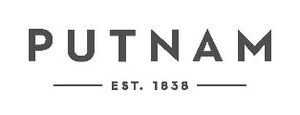
Time's Up - Female Filmmakers in Hollywood
Online
Information
Click here for the video:
Movements like “Women and Film,” “Women and Hollywood,” “Time’s up” and “Me Too” have gained increasing attention during the last years and yet, it is not the norm for female filmmakers to be represented at major award ceremonies.
After receiving bad press for shutting women out of the best director category for the last six years, the Golden Globes received a lot of praise for nominating not one, but three female directors this year.
With the Academy Awards approaching, we invited three female directors from Germany to take stock and talk about their experiences in the European and American film business.
With panelists Anja Marquardt (“The Girlfriend Experience” Season 3, Villa Aurora Filmmaker-in-residence 2016), Nora Fingscheidt (“System Crasher”/German Oscar® Entry International Feature Film 2020, MFG Star 2020) and Julia von Heinz (“And Tomorrow The Entire World” /German Oscar® Entry International Feature Film 2021), the discussion will be moderated by Sydney Levine, International Consultant and Director of the Women in Cinema Conference of the Dhaka International Film Festival.
With Welcoming Remarks by Consul General of Germany Stefan Schneider
Participants
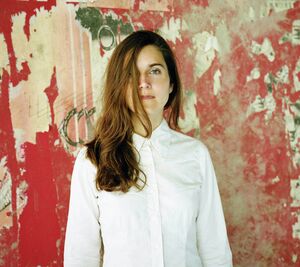
Anja Marquardt is a film and television writer/director with a focus on global stories. Born and raised in Berlin when it was still a divided city, she has also lived in Spain, France, and New York City. She is currently wrapping season 3 of the anthology series “The Girlfriend Experience” for Starz, executive produced by Steven Soderbergh. Marquardt wrote and directed all ten episodes and is the season 3 creator. Her first feature film was the acclaimed “She's Lost Control”, starring Brooke Bloom (Marriage Story) and Marc Menchaca (Ozark), and executive produced by Oren Moverman. The film had its World Premiere at Berlin International Film Festival where it won the CICAE Award, and also screened at SXSW and New Directors/New Films. The film garnered two Independent Spirit Award nominations in 2015 for Best First Screenplay and Best First Feature. “She's Lost Control” was distributed by Visit Films in North America and internationally, followed by a release on Netflix in 2016. An alumna of Berlin University of the Arts and NYU’s Graduate Film Program, Marquardt currently resides in Venice, California.

Nora Fingscheidt was born in Braunschweig in 1983. From 2003 on, she got involved in setting up the self-organized film school filmArche in Berlin. At the same time, she completed training as an acting coach. From 2008 to 2017, Nora Fingscheidt studied fictional directing at the Filmakademie Baden-Württemberg. Nora Fingscheidt graduated with the award-winning documentary “Ohne diese Welt“ (Without this World). Her film “System Crasher“ premiered at the 2019 Berlin Film Festival to rave reviews. The film was awarded the Silver Bear (Alfred Bauer Prize) and was chosen to represent Germany in the International Feature Film category at the Oscars® 2020. In 2020, Nora shot a thriller for Netflix with Sandra Bullock in the lead. The feature, currently known as the “Untitled Graham King Project”, is scheduled to be released this fall.

Julia von Heinz is a critically and commercially acclaimed director and screenwriter. Her films are known for their realism and emotionally complex characters. Von Heinz presented her work at numerous festivals, among them the Berlin International Film Festival.
She has won the German Film Award for Best Young Adult Film with her debut feature “Nothing Else Matters” in 2007, and the German Television Award for Best Director with her biopic “Katharina Luther” in 2017. Her most recent film “And Tomorrow The Entire World” premiered in Competition at Venice Film Festival 2020 and was selected to present Germany at The 93rd Academy Awards in the International Feature Film Category. Von Heinz is currently developing an adaption of Lily Brett's international best-selling novel “Too Many Men” which is set to star Lena Dunham and Mandy Patinkin.
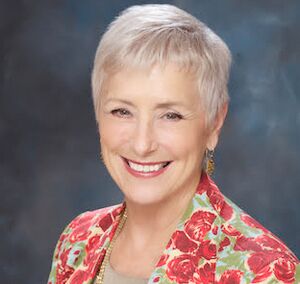
With 45+ years experience in the film industry, Sydney Levine interviews and writes about filmmakers and the industry.She began her career as the first woman in international distribution in 1975 when she was hired by 20th Century Fox International.In 1988, Levine created FilmFinders, the industry’s first database which eventually was acquired by IMDb in 2007. She left to establish SydneysBuzz, a blog about the international film business in 2009 which was part of IndieWire’s Blog Network.She has taught international film business at Chapman, University of Television and Film Munich, UCLA, Taipei Film Academy, The New School of Social Research, Deutsche Welle Akademie, Cannes Producers Workshop, and Berlinale Talents. She frequently moderates panels and seminars. She lives in Los Angeles and Berlin, travels extensively on the international film circuit and speaks English, French, German and Spanish.
Partners
In collaboration with
Consulate General of Germany and German Films


Befriending Ghosts – Digital Hauntings
Online
Information

Welcome! Befriending Ghosts – Digital Hauntings is an interactive online performance specifically designed for the digital space, and it only “works” in this framework. At the end of the first video, which you can watch here, a URL will appear; type this URL into your browser and you’ll be taken to an external website, from which you can navigate further through a network of different sites and platforms. Only a very few endpoints have no further possible steps, and these are clearly marked as such. We recommend leaving all tabs open over the course of the performance, so you can always keep track of your path through the network and return to a previous stage easily if you so choose. Do not attempt to just click through the network as quickly as possible, instead spend enough time engaging with each stage and, if you can, use good headphones.
Over the course of the performance, you could be forwarded to the following sites/platforms: Google Drive, Google Maps, Google Docs, Soundcloud, Linktree, Instagram, Vimeo, YouTube, Cryptpad and a few more; you do not need your own account for any of the platforms. All links were carefully checked during production, however, it should be noted that unexpected problems can occur and that participation in this online performance is at your own risk; no liability is assumed for any damages or legal offences stemming from your use of the different websites’ offers. When visiting an external website, you agree to the terms and conditions and data protection regulations of the respective provider or website operator; it is possible that cookie preferences must be selected for each website.
If you should have further questions, have trouble finding your way in the online performance, be unable to continue, encounter other problems or stumble into a ghost, please write an email to ghosthelp2021@gmail.com; during the period the performance is online, your messages will be read regularly and answered as soon as possible. We hope you enjoy this digital ghost hunt and discover many exciting things along the way!
“Befriending Ghosts” is broadcast by Volksbühne Berlin in cooperation with Villa Aurora & Thomas Mann House as part of the series Arman Avanessian & Enemies, the successful talk-think-theatre series for new political theory and theory formats, which has hosted over 70 events in the Volksbühne’s Roter Salon and is now in its fourth season.
Leadership in the Arts or Failure is what it's all about!
Online
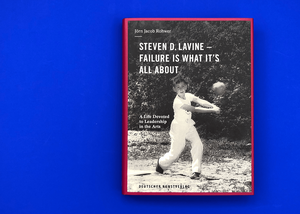
Information
Why is failure a possible and important principle in artistic practice and its teachings? Our guests Steven D. Lavine and Jörn Jacob Rohwer will address this question in conversation with Mischa Kuball and Lilian Haberer. Based on Lavine's experience as long-term president of the California Institute of the Arts (CalArts 1988-2017), our guests will connect the teachings of American (private) art schools with those in Germany.
CalArts lived through a long period of insignificance before Steven D. Lavine stepped in and led it to financial prosperity and international renown. Today, the art school is a cradle for Oscar and Pulitzer Prize winners, for Mellon and Guggenheim Fellows: a hotspot of U.S. creativity.
Background and starting point to this discussion is the newly published book "Steven D. Lavine. Failure is What It's All About. A Life Devoted to Leadership in the Arts" (Deutscher Kunstbuchverlag) by Villa Aurora alumnus Jörn Jacob Rohwer. In this book Lavine tells his personal story for the first time. He talks about cultural politics, philanthropy, the avant-garde, and his life in Los Angeles. Prompted by self-doubt and a desire to fail, he emerges as a subtle thinker, visionary, and transatlantic mediator between the worlds of art, education, and politics.
Jörn Jacob Rohwer is well known for biographical conversations with personalities from art, literature, science, and society - among others with Susan Sontag, Tomi Ungerer, Heinrich Hannover, Hans Keilson, Doris Lessing, George Tabori but also Leni Riefenstahl and Daniel Goldhagen or Richard Sennett. In 2004 Rohwer was a resident at the Villa Aurora.
The conversation is prompted by the just-published biography of former CalArts president Steven D. Lavine, written by Villa Aurora alumnus Jörn Jacon Rohwer: Jörn Jacob Rohwer / Steven D. Lavine. Failure is What It's All About. A Life Devoted to Leadership in the Arts. Deutscher Kunstbuchverlag, 2021. ISBN: 978-3-422-98155-3, Price: 34,90 € [D].
To join the event please register via e-mail by May 9, 2021 to: lecture120521@khm.de. The zoom link and password will be send to you one day in advance (May 11).
Partner
In cooperation with The Academy of Media Arts Cologne (KHM).
CRYING IN THE WILDERNESS: A Tribute to George Floyd
Online
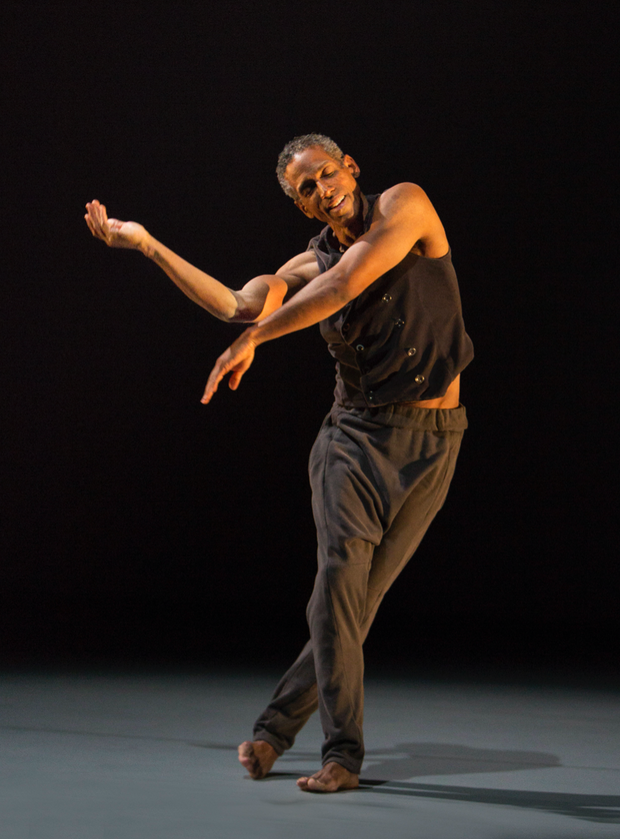
Information
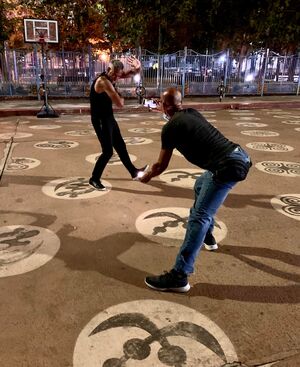
CRYING IN THE WILDERNESS: A Tribute to George Floyd in 8’46” (© Jacaranda Music, 2021)
Performed by renowned dancer/choreographer David Roussève and trumpeter Daniel Rosenboom, this work of visual music honors the late George Floyd and the Black Lives Matter movement for social justice. Conceived by Patrick Scott, Artistic Director of Jacaranda Music, this visualization of James Newton’s “The Voice of One Crying in the Wilderness” trumpet solo is co-directed by Ben Caldwell, Director, KAOS Network, with camerawork by Wesley Groves, and additional music by James Tenney.
CRYING IN THE WILDERNESS was filmed with hand-held and drone cameras in Leimert Park, LA’s historic Black neighborhood. The plaza is painted with ancient African pictograms called adinkras. The motto adinkra for this work of visual music is Mako – pepper, from the proverb, “all peppers do not ripen at the same time” symbolizing inequality and uneven development. Mako tells us: we should help the less fortunate, as our own fortunes may one day change.
On David Roussève:
“The struggles of Black Americans—oppression and abuse, poverty and neglect, AIDS and alienation register in the body of this dancer-choreographer, whose death-haunted imagination is drawn to the polarity and paradox of bondage and antic freedom… Roussève moves from the personal to the historical and on to the universal.”
— Charles McNulty, The Los Angeles Times
Partners
An event by Jacaranda in collaboration with Villa Aurora, the City of Santa Monica, Cultural Affairs Division and the German Consulate General Los Angeles
Villa Aurora & Thomas Mann House e. V. is supported by the German Federal Foreign Office and Federal Government Commissioner for Culture and the Media.

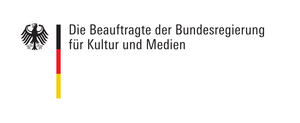
REMEMBERING THE EXILES: Salka Viertel
Online
Information
"The history of Hollywood, which is not yet written […], is incomplete without an appreciation
of Salka Viertel's distinct talent for human relationships."
— Gottfried Reinhardt, Der Liebhaber, Erinnerungen seines Sohnes Gottfried Reinhardt an Max Reinhardt (Droemer Knaur, 1972)
Join us for a reading and discussion with Salka’s biographer Donna Rifkind, Exile Studies Librarian Michaela Ullmann, and Friedel Schmoranzer, Head of Fellowship Programs Villa Aurora, excerpts from Salka’s autobiography “The Kindness of Strangers” read by actor Nina Franoszek, and exclusive footage of the legendary former Viertel residence on Mabery Road with kind permission from Susan and Don Starr.
This event will be available for streaming from June 15th here and on our YouTube channel.
Participants
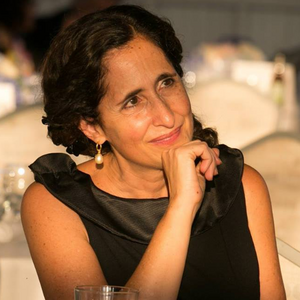
Donna Rifkind is the author of “The Sun and her Stars: Salka Viertel and Hitler’s Exiles in the Golden Age of Hollywood” (Other Press, 2020), which was nominated for a 2020 National Jewish Book Award. She also wrote the Afterword for the re-issue of Salka Viertel’s 1969 memoir, “The Kindness of Strangers”, in a new edition published by NYRB Classics in 2019.
Donna’s book reviews appear frequently in The Wall Street Journal, and she is a longtime contributor of essays and reviews to The New York Times Book Review, The Los Angeles Times, The Washington Post, The (London) Times Literary Supplement, The American Scholar, Commentary, and many other publications.
In 2006 she was a finalist for the Nona Balakian Citation for Excellence in Reviewing from the National Book Critics Circle.

Michaela Ullmann is the Exile Studies Librarian and Instruction Coordinator at USC Libraries’ Department of Special Collections. She holds an M.A. in Cultural Anthropology and Archaeology from University of Bonn, and an M.A. in Library and Information Sciences from San Jose State University. As a faculty member of the USC Libraries, Michaela oversees the Feuchtwanger Memorial Library, home to Lion Feuchtwanger’s invaluable 30,000 volume rare book collection, as well as papers by German-speaking intellectuals and artists who fled Nazi Germany and came to Los Angeles.
Michaela Ullmann is the Co-editor of “Lion Feuchtwanger. Ein möglichst intensives Leben. Die Tagebücher” (Berlin, 2018), “The Devil in France: My Encounter with Him in the Summer of 1940.” (Los Angeles 2010), “Against the Eternal Yesterday: Essays Commemorating the Legacy of Lion Feuchtwanger.” (Los Angeles 2009).

Nina Franoszek is an established stage and screen actor/director, who works internationally and lives in Berlin and Los Angeles. She performed in over 100 feature films and television shows, including Roman Polanski’s “The Pianist” and the Emmy Award winning TV show “Mad Men. She also co-stared with celebrities like Tilda Swinton, Jordan Peele and Donald Sutherland. Currently she can be seen on HBO’s TV show “The Brink” opposite Tim Robbins and Jack Black. Her awards include a Grimme Prize (Germany’s Emmy Award), a German Screen Actors Award and an Earphone Award for her outstanding narration of “The German House” in 2020. Since her performance in Wolfenstein, for which she was nominated for the BTVA Video Game Voice Acting Award in 2018, she is also a passionate motion capture performer. She is a member of SAG-AFTRA, the German Film Academy and served as a juror for the international Emmy Awards (2007-2020).
Partner
A Villa Aurora program in collaboration with USC libraries.

MEET THE ARTISTS
Los Angeles (Villa Aurora 520 Paseo Miramar Pacific Palisades, CA 90272)

Participants

Nadine Fecht, born 1976, Mannheim, studied Art and Archaeological Drawing at the Academy of Fine Arts Karlsruhe, Humboldt University Berlin, California College of the Arts San Francisco and at the University of the Arts Berlin. Nadine Fecht works primarily as a draftswoman, but also creates videos and space-related installations. Her works often oscillate between drawing and language and are conceptual and gestural expressions of an interest in alternative oppositional movements that question current political rhetoric, content, and status. From 2015-2017 as well as 2018-2019 she was guest lecturer at HBK Braunschweig.
Nadine Fecht is a 2021 Villa Aurora Fellow of the Berlin Senate Department for Culture and Europe.

Marc Fromm, born in 1971 in Langen/Hessen, trained as a carpenter and wood sculptor. He then went to the Burg Giebichenstein Art Academy in Halle to devote himself to the study of the human figure. He also studied at the École des Beaux Arts in Bordeaux. To this day, the human figure in its rapidly changing social fabric is the starting point of his motifs. The examination of basic themes and the contradictions of our time, the madness of everyday life, finds expression in large wooden sculptures and limewood reliefs.
Marc Fromm is the 2021 Villa Aurora Fellow of the Art Foundation Saxony-Anhalt.
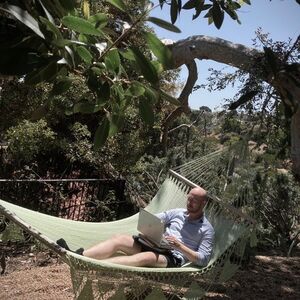
Robin Stretz, born 1996 in Pirmasens, lives and works in Frankfurt am Main.
Robin Stretz studied fine arts at the Kunsthochschule Mainz and at the Städelschule in Frankfurt am Main. Stretz works mainly with films and installations. His work negotiates films as objects and their potential to document, collage, and rearrange things without claiming to be truthful or universal in order to find poetic connections and develop a life of their own. Most of his works have their starting point on the edge of film, art or (popular) culture; smaller, seemingly unimportant stories and rumors.
Robin Stretz is Villa Aurora Fellow of the German Academic Scholarship Foundation.
MARX. A film by Olaf Nicolai – 24-Hour-Screening
Berlin
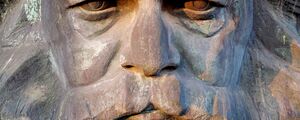
Information
"With this project, we are hosting a different understanding of time." Andrea Lissoni
The film Marx was shot during the autumnal equinox from September 21 to 22, 2020. It shows the Karl Marx monument in Chemnitz (formerly Karl-Marx-Stadt) in a 24-hour close up, while changing light conditions transformed the political icon into a landscape. The resulting images will travel the world during the 2021 autumnal equinox and will be seen in different time zones.
Screening locations according to time zones: TIMES MUSEUM, Guangzhou / MAUDI, Tblissi / AL MA’MAL FOUNDATION FOR CONTEMPORARY ART, Jerusalem / CINÉMATHÈQUE DE TANGER, Tanger / GARAGE. MUSEUM FOR CONTEMPORARY ART, Moskwa / GOETHE INSTITUT SOFIA, Sofia / LOCUS ATHEN, Athina / HAUS DER KULTUREN DER WELT, Berlin / HAUS DER KUNST, München / KUNSTSAMMLUNGEN CHEMNITZ, Chemnitz / MACRO. MUSEUM OF CONTEMPORARY ART, Roma / MGML. MUSEUM AND GALLERIES OF LJUBLJANA, Ljubljana / ICA. INSTITUTE OF CONTEMPORARY ARTS, London / FOGO ISLAND ARTS, Fogo Island / SUBTE. CENTRO DE EXPOSICIONES, Montevideo / ARTE CONTINUA LA HABANNA, Habanna / VILLA AURORA, Los Angeles
#24hMarx www.hausderkunst.de
Please join us at the Villa Aurora on September 21st starting at noon-10pm and September 22nd 10am-noon for a special film screening of Marx by Olaf Nicolai.
RSVP and Masks required. Please bring one of the following documents required for admittance: Proof of Vaccination OR Proof of Immunity OR Proof of a Negative COVID Test performed no earlier than 48 hours prior to event.
Location
Villa Aurora, 520 Paseo Miramar, Los Angeles, CA 90272
Admission is free
RSVP & Mask mandatory. If you are interested in attending, please call (310)-454-4231 or e-mail at infola@vatmh.org. Seating is limited and time slots vary. Please request a time slot of up to 2 hours with your RSVP
Partners
Produced as part of the project “Gegenwarten I Presences 2020”, organized by the Kunstsammlungen Chemnitz. The worldwide 24-hour-premiere is made possible by the support of Haus der Kunst, Munich; Galerie EIGEN + ART Leipzig/Berlin; Knust Kunz Gallery Editions; Stiftung Federkiel & Christian Jacobs; Kulturstiftung des Bundes and Stadt Chemnitz.
IN CONVERSATION: Laura Castañeda with Emir Olivares
Online
Information
Mexican journalist Emir Olivares is the 2021 recipient of the Feuchtwanger Fellowship.
This event will be available for streaming on October 20th, 12 pm on our YouTube channel.
Participants
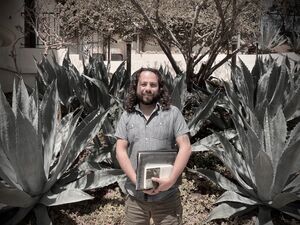
Emir Olivares has worked since 2003 as a reporter at La Jornada, one of Mexico's most important daily newspapers, and is particularly dedicated to topics such as human rights violations, migration, corruption and foreign affairs. After he exposed drug deals tied to organized crime on the campus of the Universidad Nacional Autónoma de México (UNAM) in Mexico City in June 2017, he received threats that he would be assassinated if he continued reporting on the issue. He was immediately pulled from covering anything related to the university, after 10 years on the beat. Even so, in December 2019, his apartment was broken into and Olivares was again threatened in connection with the earlier reporting. He was forced to leave his home, just before the pandemic hit, and spent more than a year unable to write under his name at La Jornada as a protection measure. To this day, Mexican authorities have not made any arrests in either incident, and Olivares remains in a government security program with the protection of bodyguards.

Laura Castañeda, EdD, an award-winning professor of professional practice in the USC Annenberg School of Journalism, has been a member of the faculty since 2000. Before joining USC Annenberg, she taught at Temple University and worked as a staff writer, editor and columnist for The San Francisco Chronicle, The Dallas Morning News, and The Associated Press in San Francisco, New York and Mexico. Her freelance work has appeared in The New York Times, TheAtlantic.com, and Columbia Journalism Review magazine, among others. Her scholarly articles have appeared in Journalism and Mass Communication Educator and Journalism Studies.
She teaches a range of undergraduate and graduate courses focused on reporting, writing and diversity.
In 2019, Castañeda was awarded the Barry Bingham Sr. Fellowship by the American Society of News Editors in recognition of an educator’s outstanding efforts to encourage students of color in the field of journalism.
Partners
A Villa Aurora program in collaboration with USC Annenberg School for Communication and Journalism and USC libraries.

Ceremony - The Sanctuary. Art and Literature from Exile and Hermitage
Los Angeles (520 Paseo Miramar, LA, CA 90272)

Information
Marianne Heuwagen, Deputy Chairwoman Villa Aurora & Thomas Mann House
Stefan Schneider, Consul General of the Federal Republic of Germany
Marje Schuetze-Coburn, Associate Dean USC Feuchtwanger Memorial Library, Faculty Affairs; Dean of Research, Co-Head, East Asian Library
Steven D. Lavine, President Emeritus CalArts, Chairman Thomas Mann House Advisory Board
3:15 pm The Sanctuary: Session 1
Stefan Keppler-Tasaki: 25 Years of Literature from the Villa Aurora, a Sanctuary of Exile and a Gateway to California
Q&A moderated by Michaela Ullmann
Reading by Kevin Vennemann: Sunset Boulevard: Vom Filmen, Bauen und Sterben in Los Angeles
Q&A moderated by Stefan Keppler-Tasaki
4:30 pm coffee break
5:00 pm: Introduction of current Villa Aurora artists-in-residence Ulu Braun (film), Anna Sofie Hartmann (film), Sarah Szczesny (visual art), and Isabelle Stever (film)
5:15 pm: Hanno Leichtmann (Villa Aurora composer-in-residence 2018): OUTERLANDS, live performance of a composition made exclusively with sounds recorded inside the Villa Aurora cinema organ and a 4-channel backing tape
Participants
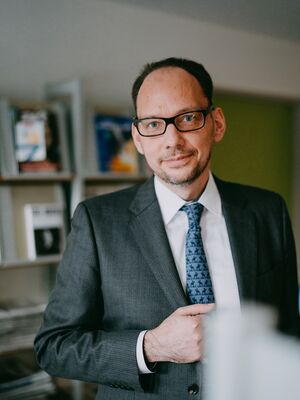
Stefan Keppler-Tasaki, born 1973 in Wertheim am Main, studied German Literature at the Julius Maximilian’s University Würzburg and received his doctorate in 2005 on the topic of “Limits of the Self” in Goethe's narrative fiction. From 2002 to 2008, he was an Assistant Professor at the University of Würzburg and the Free University of Berlin, subsequently Junior Professor at the Friedrich Schlegel Graduate School of the FU. In 2012, he was appointed to a tenure-track professorship for Modern German Literature at the University of Tokyo and has lived in the Japanese capital since then.
His work focuses on Goethe and on exile writers (Alfred Döblin, Thomas Mann, etc.), especially from the angle of the history of ideas and of inter-media studies. Also, he repeatedly occupied himself with the history of NS ideology, not least in his region of origin in the southwest of Germany.
During his student and doctorate years, Stefan was a scholarship holder of the German Academic Scholarship Foundation. From 2015 onwards, the Einstein Foundation Berlin supported his research cooperation between the Free University of Berlin and the University of Tokyo through a five-year Einstein Visiting Fellowship. In 2019, he was also a fellow at the Thomas Mann House in Los Angeles. He is a member of the Berlin based Cluster of Excellence "Temporal Communities – Doing Literature in a Global Perspective".
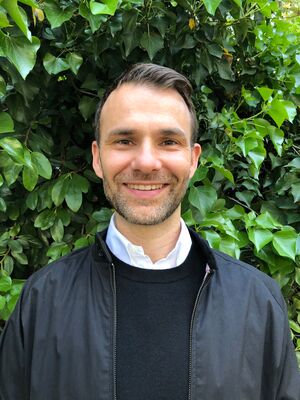
Kevin Vennemann teaches at Scripps College in Claremont, CA, and lives in Los Angeles. Recent publications include the study Die Welt vom Rücken des Kranichs. Thermodynamik und der Verfall einer Familie (Berlin: Matthes & Seitz 2020).

Hanno Leichtmann got his start in improvised music, but has focused on electronic music since 1998. With his solo project “Static”, he released several albums and toured the world. In 2011, Leichtmann released the “lost” Soundtrack for Christoph Schlingensief’s last film "African Twintowers" (zuletzt aufgeführt bei der CTM 2016 im HAU 1). As a member of the trio “Groupshow”, he has set to music the eight hour long Andy Warhol “Empire” on several different occasions. Since 2008, he has regularly curated festivals and club series, such as Letra / Tone – Festival for graphic arts and music and SYN / CUSSION - Festival for percussion and electronics. Since 2013, Leichtmann has worked primarily as a sound artist, using sound archives as sounds set for new works. His extensive work “Nouvelles Aventures” was presented during the International Summer School for New Music. Leichtmann’s percussive sound installation “Skin, Wood, Traps”, created during a residency in Wellington, New Zealand, was presented at the House of World Cultures in Berlin. During his 2018 residency at Villa Aurora, he developed a six-channel sound installation for dance company Sasha Waltz & Guests which premiered in Berlin that same year. (Im März 2019 kuratierte er die zweite Ausgabe des Letra / Tone Festivals für Grafik und Musik). Leichtmann is co-curator, with Caroline Brandl, of the festival SCULPTURE – Sculptural Concepts for Choreography and Music (welches zweimal im Georg Kolbe Museum in berlin stattfand). In October 2021, Leichtmann presented his sound installation SECULUM at the Donaueschinger Musiktage. In 2021, he also founded an exclusive fashion label (in Ponta do Sol, Madeira) which is distributed at the legendary boutique Nova Minerva in Madeira’s capital Funchal.
Hanno Leichtmann lives and works in Berlin and Ponta do Sol, Madeira.
Partners
In cooperation with USC Libraries, USC Max Kade Institute, Freie Universität Berlin and University of Tokyo
Hinweise zur Veranstaltung
Symposium - The Sanctuary. Art and Literature from Exile and Hermitage, Nov. 10
Online

Information
Session 2: November 10, 2021, 9:00am
Welcoming Remarks by Claudia Gordon (Villa Aurora) and Michaela Ullmann (USC Feuchtwanger Memorial Library)
Introduction to the Zoom Meeting Series by Claudia Gordon and Stefan Keppler-Tasaki
Reading by Tanja Dückers: Safe.Space
Q&A moderated by Stefan Keppler-Tasaki
Session 3: November 15, 2021, 10am
Reading by Felicitas Hoppe: The Sanctuary
Q&A moderated by Friedel Schmoranzer
Session 4: November 16, 2021, 10:30am
Lecture by Annette Jael Lehmann-Kolesch: From the Secret Wing: On the Move - Multidirections of Doing Literature
Q&A moderated by Friederike von Schwerin-High
Participants

Stefan Keppler-Tasaki, born 1973 in Wertheim am Main, studied German Literature at the Julius Maximilian’s University Würzburg and received his doctorate in 2005 on the topic of “Limits of the Self” in Goethe's narrative fiction. From 2002 to 2008, he was an Assistant Professor at the University of Würzburg and the Free University of Berlin, subsequently Junior Professor at the Friedrich Schlegel Graduate School of the FU. In 2012, he was appointed to a tenure-track professorship for Modern German Literature at the University of Tokyo and has lived in the Japanese capital since then.
His work focuses on Goethe and on exile writers (Alfred Döblin, Thomas Mann, etc.), especially from the angle of the history of ideas and of inter-media studies. Also, he repeatedly occupied himself with the history of NS ideology, not least in his region of origin in the southwest of Germany.
During his student and doctorate years, Stefan was a scholarship holder of the German Academic Scholarship Foundation. From 2015 onwards, the Einstein Foundation Berlin supported his research cooperation between the Free University of Berlin and the University of Tokyo through a five-year Einstein Visiting Fellowship. In 2019, he was also a fellow at the Thomas Mann House in Los Angeles. He is a member of the Berlin based Cluster of Excellence "Temporal Communities – Doing Literature in a Global Perspective".

Kevin Vennemann teaches at Scripps College in Claremont, CA, and lives in Los Angeles. Recent publications include the study Die Welt vom Rücken des Kranichs. Thermodynamik und der Verfall einer Familie (Berlin: Matthes & Seitz 2020).

Tanja Dückers, born in 1968 in Berlin (west), is an author and publicist. She published 19 books; among her most important works are the novel “Spielzone,” “Himmelskörper,” “Der Längste Tag des Jahres” und “Hausers Zimmer,” the essay collection “Morgen nach Utopia,” the plays “Spielzone” and “Grüße aus Transnistrien” (world premiere at Berlin’s HAU II) as well as her volumes of poetry, among other “Fundbüro und Verstecke.” Most recently, her autobiographically tinted retrospect “Mein altes West-Berlin” as well as “Schoki Doki” (short stories) were published.
Collaboration with artists of various disciplines, composers, theater directors, painters, chocolatiers.
Tanja Dückers nationally and internationally expresses her opinion on topics of cultural and socio-political relevance, she writes for various newspapers, magazines, TV and radio stations (Deutsche Welle, Tagesspiegel, ZEIT Online, Morgenpost, Berliner Zeitung, Süddeutsche, taz, Frankfurter Rundschau, Welt, Jungle World, Politik & Kultur, kulturaustausch, AI-Journal, RBB). She is part of Deutschlandfunks “Politisches Feuilleton” on a regular basis.
Tanja Dückers won numerous prizes and scholarships which brought her to New Hampshire (Dartmouth College), Pennsylvania (Allegheny College), Ohio (Miami University as well as Oberlin College), California (Villa Aurora), South Africa and to many other mostly middle and eastern European countries. She held writing workshops in Germany and internationally, for example in Romania, Belarus, Kenya and India. In 2022, she will be Max Kade fellow at the University of Wisconsin-Madison.
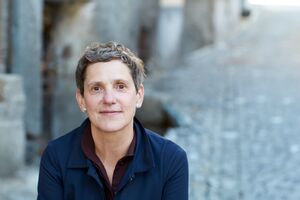
Berlin-based writer Felicitas Hoppe was born in Hameln in 1960.
Her debut “Picknick der Friseure” was published in 1996, her novel “Pigafetta” followed in 1999 after taking a world trip on a freight ship, in 2003 “Paradiese, Übersee” was published, in 2004 “Verbrecher und Versager,” in 2006 “Johanna,” in 2009 “Iwein Löwenritter,” in 2009 “Sieben Schätze” and the story “Der beste Platz der Welt,” in 2010 “Abenteuer – was ist das?” in 2011 “Grünes Ei mit Speck,” a translation of texts of the American children’s writer Dr. Seuss, in 2012 the novel “Hoppe,” in 2018 the novel “Prawda. Eine amerikanische Reise” and, most recently in 2021, “Die Nibelungen. Ein deutscher Stummfilm.” She has been awarded numerous prizes, amongst others the aspekte-Literaturpreis, the Bremer Literaturpreis, the Roswitha-Preis der Stadt Bad Gandersheim, the Rattenfänger-Literaturpreis, the Georg-Büchner-Preis and the Erich Kästner Preis für Literatur. Felicitas Hoppe is the first winner of the Große Preis des Deutschen Literaturfonds. She furthermore held poetics lecturing posts and was visiting professor in Wiesbaden, Mainz, Augsburg, Göttingen, at Dartmouth College in Hanover, New Hampshire, at Georgetown University, Washington D.C., in Hamburg, Heidelberg and Cologne.
Literary prizes (selected):
Foglio-Preis für junge Literatur (1995)
Aspekte-Literaturpreis (1996)
Ernst-Willner-Preis im Bachmann-Literaturwettbewerb (1996)
Rauriser Literaturpreis (1997)
Laurenz-Haus-Stiftung Basel (1998)
Niedersächsischer Förderpreis für Literatur (1999)
Spycher: Literaturpreis Leuk, Nicolas Born-Preis, Heimito von Doderer-Literaturpreis (alle 2004)
Brüder Grimm-Preis der Stadt Hanau (2005)
Bremer Literaturpreis (2007)
Roswitha-Preis der Stadt Bad Gandersheim (2007)
Rattenfänger-Literaturpreis (2010)
Preisträgerin des Comburg-Stipendiums (2010)
Villa Aurora (2012)
Georg-Büchner-Preis (2012)
Werner-Bergengruen-Preis (2015)
Erich Kästner Preis für Literatur (2015)
Ehrendoktorwürde der Leuphana Universität Lüneburg (2016)
Großer Preis des Deutschen Literaturfonds (2020)
Kasseler Literaturpreis für grotesken Humor (2021)
http://www.felicitas-hoppe.de/
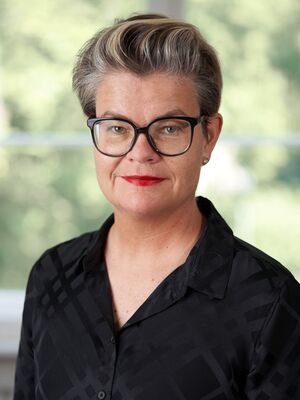
Annette Jael Lehmann-Kolesch has studied Comparative Literature, Art History, American Studies and Philosophy in Berlin, Oxford and Berkeley. In 1996, she received her PhD in comparative literature and aesthetics at the Freie Universität Berlin. Between 1995–1998,she was Visiting Assistant Professor at the Humanities Division of the University of California (UCLA), Adjunct Faculty Member at the School of Critical Studies, California Institutes of the Arts (CalArts), and Visiting Scholar at the School of Arts, Letters and Sciences at the University of Southern California (USC).Between 1999–2005, she was Research Assistant at the DFG-Collaborative Research Centre SFB 447: Kulturen des Performativen and obtained her Habilitation in Visual Culture at the Freie Universität Berlin (2005). During this time, she was also Executive Manager of the Zentrum für Interdisziplinäre Kunstwissenschaften und Ästhetik (2006). Between 2007–2019, she was Professor of Contemporary Art, Visual Culture and Theater at the Freie UniversitätBerlin. Since 2017, she is Principal Investigator (PI) at the Einstein Center Digital Future (ECDF). In 2019 she became Principal Researcher (PR) at the Excellence Cluster ‘Temporal Communities: Doing Literature in a Global Perspective’ at the Freie Universität Berlin and PI at the Friedrich Schlegel Graduierten Schule für Literaturwissenschaftliche Studien. Since fall 2019/20, she has been Professor and Head of the Seminar für Kultur-und Medienmanagementat Institut für Theaterwissenschaft, FU Berlin. She is an affiliate at metaLAB(at) Harvard/Berkman Klein Center, Harvard University. Since spring 2021 she is head of metaLAB (at) FU Berlin. Annette Jael Lehmann-Kolesch is married, has two children and lives in Berlin.
HONORS /AWARDS /FELLOWSHIPS
Fellowship, Literary Research Center Huntington Library, Pasadena, California, USA (1997)
Visiting Research Fellow, Getty Research Institute, Los Angeles, USA (2001)
Prize winner (1st place) of theJungen Akademie at the Berlin-Brandenburgischen Akademie der Wissenschaften and the Deutschen Akademie der Naturforscher Leopoldina, Deutschland (2003)
Visiting Fellow at Rothermere American Institute, University of Oxford, England (2004)
Mentee, ProFiL-Programm, Mentoring, Training, Networking, Freie Universität Berlin, Technische Universität Berlin, Humboldt Universität Berlin, Universität Potsdam, Germany; mentor: Prof. Monika Grütters (2005)
Senior Research and Teaching Stay at the Hebrew University ofJerusalem, Israel (2015)
Global Humanities Senior Fellow at Mahindra Humanities Center at Harvard University, Cambridge, Massachusetts, USA (2016/17
Partners
In cooperation with USC Libraries, USC Max Kade Institute, Freie Universität Berlin and University of Tokyo.
Symposium - The Sanctuary. Art and Literature from Exile and Hermitage, Nov. 15
Online

Information
Session 2: November 10, 2021, 9:00am
Welcoming Remarks by Claudia Gordon (Villa Aurora) and Michaela Ullmann (USC Feuchtwanger Memorial Library)
Introduction to the Zoom Meeting Series by Claudia Gordon and Stefan Keppler-Tasaki
Reading by Tanja Dückers: Safe.Space
Q&A moderated by Stefan Keppler-Tasaki
Session 3: November 15, 2021, 10am
Reading by Felicitas Hoppe: The Sanctuary
Q&A moderated by Friedel Schmoranzer
Session 4: November 16, 2021, 10:30am
Lecture by Annette Jael Lehmann-Kolesch: From the Secret Wing: On the Move - Multidirections of Doing Literature
Q&A moderated by Friederike von Schwerin-High
Participants

Stefan Keppler-Tasaki, born 1973 in Wertheim am Main, studied German Literature at the Julius Maximilian’s University Würzburg and received his doctorate in 2005 on the topic of “Limits of the Self” in Goethe's narrative fiction. From 2002 to 2008, he was an Assistant Professor at the University of Würzburg and the Free University of Berlin, subsequently Junior Professor at the Friedrich Schlegel Graduate School of the FU. In 2012, he was appointed to a tenure-track professorship for Modern German Literature at the University of Tokyo and has lived in the Japanese capital since then.
His work focuses on Goethe and on exile writers (Alfred Döblin, Thomas Mann, etc.), especially from the angle of the history of ideas and of inter-media studies. Also, he repeatedly occupied himself with the history of NS ideology, not least in his region of origin in the southwest of Germany.
During his student and doctorate years, Stefan was a scholarship holder of the German Academic Scholarship Foundation. From 2015 onwards, the Einstein Foundation Berlin supported his research cooperation between the Free University of Berlin and the University of Tokyo through a five-year Einstein Visiting Fellowship. In 2019, he was also a fellow at the Thomas Mann House in Los Angeles. He is a member of the Berlin based Cluster of Excellence "Temporal Communities – Doing Literature in a Global Perspective".

Kevin Vennemann teaches at Scripps College in Claremont, CA, and lives in Los Angeles. Recent publications include the study Die Welt vom Rücken des Kranichs. Thermodynamik und der Verfall einer Familie (Berlin: Matthes & Seitz 2020).

Tanja Dückers, born in 1968 in Berlin (west), is an author and publicist. She published 19 books; among her most important works are the novel “Spielzone,” “Himmelskörper,” “Der Längste Tag des Jahres” und “Hausers Zimmer,” the essay collection “Morgen nach Utopia,” the plays “Spielzone” and “Grüße aus Transnistrien” (world premiere at Berlin’s HAU II) as well as her volumes of poetry, among other “Fundbüro und Verstecke.” Most recently, her autobiographically tinted retrospect “Mein altes West-Berlin” as well as “Schoki Doki” (short stories) were published.
Collaboration with artists of various disciplines, composers, theater directors, painters, chocolatiers.
Tanja Dückers nationally and internationally expresses her opinion on topics of cultural and socio-political relevance, she writes for various newspapers, magazines, TV and radio stations (Deutsche Welle, Tagesspiegel, ZEIT Online, Morgenpost, Berliner Zeitung, Süddeutsche, taz, Frankfurter Rundschau, Welt, Jungle World, Politik & Kultur, kulturaustausch, AI-Journal, RBB). She is part of Deutschlandfunks “Politisches Feuilleton” on a regular basis.
Tanja Dückers won numerous prizes and scholarships which brought her to New Hampshire (Dartmouth College), Pennsylvania (Allegheny College), Ohio (Miami University as well as Oberlin College), California (Villa Aurora), South Africa and to many other mostly middle and eastern European countries. She held writing workshops in Germany and internationally, for example in Romania, Belarus, Kenya and India. In 2022, she will be Max Kade fellow at the University of Wisconsin-Madison.

Berlin-based writer Felicitas Hoppe was born in Hameln in 1960.
Her debut “Picknick der Friseure” was published in 1996, her novel “Pigafetta” followed in 1999 after taking a world trip on a freight ship, in 2003 “Paradiese, Übersee” was published, in 2004 “Verbrecher und Versager,” in 2006 “Johanna,” in 2009 “Iwein Löwenritter,” in 2009 “Sieben Schätze” and the story “Der beste Platz der Welt,” in 2010 “Abenteuer – was ist das?” in 2011 “Grünes Ei mit Speck,” a translation of texts of the American children’s writer Dr. Seuss, in 2012 the novel “Hoppe,” in 2018 the novel “Prawda. Eine amerikanische Reise” and, most recently in 2021, “Die Nibelungen. Ein deutscher Stummfilm.” She has been awarded numerous prizes, amongst others the aspekte-Literaturpreis, the Bremer Literaturpreis, the Roswitha-Preis der Stadt Bad Gandersheim, the Rattenfänger-Literaturpreis, the Georg-Büchner-Preis and the Erich Kästner Preis für Literatur. Felicitas Hoppe is the first winner of the Große Preis des Deutschen Literaturfonds. She furthermore held poetics lecturing posts and was visiting professor in Wiesbaden, Mainz, Augsburg, Göttingen, at Dartmouth College in Hanover, New Hampshire, at Georgetown University, Washington D.C., in Hamburg, Heidelberg and Cologne.
Literary prizes (selected):
Foglio-Preis für junge Literatur (1995)
Aspekte-Literaturpreis (1996)
Ernst-Willner-Preis im Bachmann-Literaturwettbewerb (1996)
Rauriser Literaturpreis (1997)
Laurenz-Haus-Stiftung Basel (1998)
Niedersächsischer Förderpreis für Literatur (1999)
Spycher: Literaturpreis Leuk, Nicolas Born-Preis, Heimito von Doderer-Literaturpreis (alle 2004)
Brüder Grimm-Preis der Stadt Hanau (2005)
Bremer Literaturpreis (2007)
Roswitha-Preis der Stadt Bad Gandersheim (2007)
Rattenfänger-Literaturpreis (2010)
Preisträgerin des Comburg-Stipendiums (2010)
Villa Aurora (2012)
Georg-Büchner-Preis (2012)
Werner-Bergengruen-Preis (2015)
Erich Kästner Preis für Literatur (2015)
Ehrendoktorwürde der Leuphana Universität Lüneburg (2016)
Großer Preis des Deutschen Literaturfonds (2020)
Kasseler Literaturpreis für grotesken Humor (2021)
http://www.felicitas-hoppe.de/

Annette Jael Lehmann-Kolesch has studied Comparative Literature, Art History, American Studies and Philosophy in Berlin, Oxford and Berkeley. In 1996, she received her PhD in comparative literature and aesthetics at the Freie Universität Berlin. Between 1995–1998,she was Visiting Assistant Professor at the Humanities Division of the University of California (UCLA), Adjunct Faculty Member at the School of Critical Studies, California Institutes of the Arts (CalArts), and Visiting Scholar at the School of Arts, Letters and Sciences at the University of Southern California (USC).Between 1999–2005, she was Research Assistant at the DFG-Collaborative Research Centre SFB 447: Kulturen des Performativen and obtained her Habilitation in Visual Culture at the Freie Universität Berlin (2005). During this time, she was also Executive Manager of the Zentrum für Interdisziplinäre Kunstwissenschaften und Ästhetik (2006). Between 2007–2019, she was Professor of Contemporary Art, Visual Culture and Theater at the Freie UniversitätBerlin. Since 2017, she is Principal Investigator (PI) at the Einstein Center Digital Future (ECDF). In 2019 she became Principal Researcher (PR) at the Excellence Cluster ‘Temporal Communities: Doing Literature in a Global Perspective’ at the Freie Universität Berlin and PI at the Friedrich Schlegel Graduierten Schule für Literaturwissenschaftliche Studien. Since fall 2019/20, she has been Professor and Head of the Seminar für Kultur-und Medienmanagementat Institut für Theaterwissenschaft, FU Berlin. She is an affiliate at metaLAB(at) Harvard/Berkman Klein Center, Harvard University. Since spring 2021 she is head of metaLAB (at) FU Berlin. Annette Jael Lehmann-Kolesch is married, has two children and lives in Berlin.
HONORS /AWARDS /FELLOWSHIPS
Fellowship, Literary Research Center Huntington Library, Pasadena, California, USA (1997)
Visiting Research Fellow, Getty Research Institute, Los Angeles, USA (2001)
Prize winner (1st place) of theJungen Akademie at the Berlin-Brandenburgischen Akademie der Wissenschaften and the Deutschen Akademie der Naturforscher Leopoldina, Deutschland (2003)
Visiting Fellow at Rothermere American Institute, University of Oxford, England (2004)
Mentee, ProFiL-Programm, Mentoring, Training, Networking, Freie Universität Berlin, Technische Universität Berlin, Humboldt Universität Berlin, Universität Potsdam, Germany; mentor: Prof. Monika Grütters (2005)
Senior Research and Teaching Stay at the Hebrew University ofJerusalem, Israel (2015)
Global Humanities Senior Fellow at Mahindra Humanities Center at Harvard University, Cambridge, Massachusetts, USA (2016/17
Partners
In cooperation with USC Libraries, USC Max Kade Institute, Freie Universität Berlin and University of Tokyo.
Symposium - The Sanctuary. Art and Literature from Exile and Hermitage, Nov. 16
Online

Information
Session 2: November 10, 2021, 9:00am
Welcoming Remarks by Claudia Gordon (Villa Aurora) and Michaela Ullmann (USC Feuchtwanger Memorial Library)
Introduction to the Zoom Meeting Series by Claudia Gordon and Stefan Keppler-Tasaki
Reading by Tanja Dückers: Safe.Space
Q&A moderated by Stefan Keppler-Tasaki
Session 3: November 15, 2021, 10am
Reading by Felicitas Hoppe: The Sanctuary
Q&A moderated by Friedel Schmoranzer
Session 4: November 16, 2021, 10:30am
Lecture by Annette Jael Lehmann-Kolesch: From the Secret Wing: On the Move - Multidirections of Doing Literature
Q&A moderated by Friederike von Schwerin-High
Participants

Stefan Keppler-Tasaki, born 1973 in Wertheim am Main, studied German Literature at the Julius Maximilian’s University Würzburg and received his doctorate in 2005 on the topic of “Limits of the Self” in Goethe's narrative fiction. From 2002 to 2008, he was an Assistant Professor at the University of Würzburg and the Free University of Berlin, subsequently Junior Professor at the Friedrich Schlegel Graduate School of the FU. In 2012, he was appointed to a tenure-track professorship for Modern German Literature at the University of Tokyo and has lived in the Japanese capital since then.
His work focuses on Goethe and on exile writers (Alfred Döblin, Thomas Mann, etc.), especially from the angle of the history of ideas and of inter-media studies. Also, he repeatedly occupied himself with the history of NS ideology, not least in his region of origin in the southwest of Germany.
During his student and doctorate years, Stefan was a scholarship holder of the German Academic Scholarship Foundation. From 2015 onwards, the Einstein Foundation Berlin supported his research cooperation between the Free University of Berlin and the University of Tokyo through a five-year Einstein Visiting Fellowship. In 2019, he was also a fellow at the Thomas Mann House in Los Angeles. He is a member of the Berlin based Cluster of Excellence "Temporal Communities – Doing Literature in a Global Perspective".

Kevin Vennemann teaches at Scripps College in Claremont, CA, and lives in Los Angeles. Recent publications include the study Die Welt vom Rücken des Kranichs. Thermodynamik und der Verfall einer Familie (Berlin: Matthes & Seitz 2020).

Tanja Dückers, born in 1968 in Berlin (west), is an author and publicist. She published 19 books; among her most important works are the novel “Spielzone,” “Himmelskörper,” “Der Längste Tag des Jahres” und “Hausers Zimmer,” the essay collection “Morgen nach Utopia,” the plays “Spielzone” and “Grüße aus Transnistrien” (world premiere at Berlin’s HAU II) as well as her volumes of poetry, among other “Fundbüro und Verstecke.” Most recently, her autobiographically tinted retrospect “Mein altes West-Berlin” as well as “Schoki Doki” (short stories) were published.
Collaboration with artists of various disciplines, composers, theater directors, painters, chocolatiers.
Tanja Dückers nationally and internationally expresses her opinion on topics of cultural and socio-political relevance, she writes for various newspapers, magazines, TV and radio stations (Deutsche Welle, Tagesspiegel, ZEIT Online, Morgenpost, Berliner Zeitung, Süddeutsche, taz, Frankfurter Rundschau, Welt, Jungle World, Politik & Kultur, kulturaustausch, AI-Journal, RBB). She is part of Deutschlandfunks “Politisches Feuilleton” on a regular basis.
Tanja Dückers won numerous prizes and scholarships which brought her to New Hampshire (Dartmouth College), Pennsylvania (Allegheny College), Ohio (Miami University as well as Oberlin College), California (Villa Aurora), South Africa and to many other mostly middle and eastern European countries. She held writing workshops in Germany and internationally, for example in Romania, Belarus, Kenya and India. In 2022, she will be Max Kade fellow at the University of Wisconsin-Madison.

Berlin-based writer Felicitas Hoppe was born in Hameln in 1960.
Her debut “Picknick der Friseure” was published in 1996, her novel “Pigafetta” followed in 1999 after taking a world trip on a freight ship, in 2003 “Paradiese, Übersee” was published, in 2004 “Verbrecher und Versager,” in 2006 “Johanna,” in 2009 “Iwein Löwenritter,” in 2009 “Sieben Schätze” and the story “Der beste Platz der Welt,” in 2010 “Abenteuer – was ist das?” in 2011 “Grünes Ei mit Speck,” a translation of texts of the American children’s writer Dr. Seuss, in 2012 the novel “Hoppe,” in 2018 the novel “Prawda. Eine amerikanische Reise” and, most recently in 2021, “Die Nibelungen. Ein deutscher Stummfilm.” She has been awarded numerous prizes, amongst others the aspekte-Literaturpreis, the Bremer Literaturpreis, the Roswitha-Preis der Stadt Bad Gandersheim, the Rattenfänger-Literaturpreis, the Georg-Büchner-Preis and the Erich Kästner Preis für Literatur. Felicitas Hoppe is the first winner of the Große Preis des Deutschen Literaturfonds. She furthermore held poetics lecturing posts and was visiting professor in Wiesbaden, Mainz, Augsburg, Göttingen, at Dartmouth College in Hanover, New Hampshire, at Georgetown University, Washington D.C., in Hamburg, Heidelberg and Cologne.
Literary prizes (selected):
Foglio-Preis für junge Literatur (1995)
Aspekte-Literaturpreis (1996)
Ernst-Willner-Preis im Bachmann-Literaturwettbewerb (1996)
Rauriser Literaturpreis (1997)
Laurenz-Haus-Stiftung Basel (1998)
Niedersächsischer Förderpreis für Literatur (1999)
Spycher: Literaturpreis Leuk, Nicolas Born-Preis, Heimito von Doderer-Literaturpreis (alle 2004)
Brüder Grimm-Preis der Stadt Hanau (2005)
Bremer Literaturpreis (2007)
Roswitha-Preis der Stadt Bad Gandersheim (2007)
Rattenfänger-Literaturpreis (2010)
Preisträgerin des Comburg-Stipendiums (2010)
Villa Aurora (2012)
Georg-Büchner-Preis (2012)
Werner-Bergengruen-Preis (2015)
Erich Kästner Preis für Literatur (2015)
Ehrendoktorwürde der Leuphana Universität Lüneburg (2016)
Großer Preis des Deutschen Literaturfonds (2020)
Kasseler Literaturpreis für grotesken Humor (2021)
http://www.felicitas-hoppe.de/

Annette Jael Lehmann-Kolesch has studied Comparative Literature, Art History, American Studies and Philosophy in Berlin, Oxford and Berkeley. In 1996, she received her PhD in comparative literature and aesthetics at the Freie Universität Berlin. Between 1995–1998,she was Visiting Assistant Professor at the Humanities Division of the University of California (UCLA), Adjunct Faculty Member at the School of Critical Studies, California Institutes of the Arts (CalArts), and Visiting Scholar at the School of Arts, Letters and Sciences at the University of Southern California (USC).Between 1999–2005, she was Research Assistant at the DFG-Collaborative Research Centre SFB 447: Kulturen des Performativen and obtained her Habilitation in Visual Culture at the Freie Universität Berlin (2005). During this time, she was also Executive Manager of the Zentrum für Interdisziplinäre Kunstwissenschaften und Ästhetik (2006). Between 2007–2019, she was Professor of Contemporary Art, Visual Culture and Theater at the Freie UniversitätBerlin. Since 2017, she is Principal Investigator (PI) at the Einstein Center Digital Future (ECDF). In 2019 she became Principal Researcher (PR) at the Excellence Cluster ‘Temporal Communities: Doing Literature in a Global Perspective’ at the Freie Universität Berlin and PI at the Friedrich Schlegel Graduierten Schule für Literaturwissenschaftliche Studien. Since fall 2019/20, she has been Professor and Head of the Seminar für Kultur-und Medienmanagementat Institut für Theaterwissenschaft, FU Berlin. She is an affiliate at metaLAB(at) Harvard/Berkman Klein Center, Harvard University. Since spring 2021 she is head of metaLAB (at) FU Berlin. Annette Jael Lehmann-Kolesch is married, has two children and lives in Berlin.
HONORS /AWARDS /FELLOWSHIPS
Fellowship, Literary Research Center Huntington Library, Pasadena, California, USA (1997)
Visiting Research Fellow, Getty Research Institute, Los Angeles, USA (2001)
Prize winner (1st place) of theJungen Akademie at the Berlin-Brandenburgischen Akademie der Wissenschaften and the Deutschen Akademie der Naturforscher Leopoldina, Deutschland (2003)
Visiting Fellow at Rothermere American Institute, University of Oxford, England (2004)
Mentee, ProFiL-Programm, Mentoring, Training, Networking, Freie Universität Berlin, Technische Universität Berlin, Humboldt Universität Berlin, Universität Potsdam, Germany; mentor: Prof. Monika Grütters (2005)
Senior Research and Teaching Stay at the Hebrew University ofJerusalem, Israel (2015)
Global Humanities Senior Fellow at Mahindra Humanities Center at Harvard University, Cambridge, Massachusetts, USA (2016/17
Partners
In cooperation with USC Libraries, USC Max Kade Institute, Freie Universität Berlin and University of Tokyo.
Meet The Artists Reception
Los Angeles (520 Paseo Miramar, Villa Aurora)

Participants
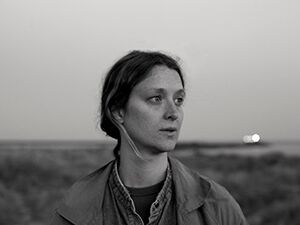
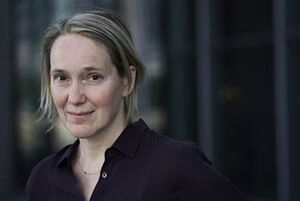

Ulu Braun (1976, Germany) lives and works in Berlin. Between 1996-2005 he studied film and visual arts at the University for applied Arts in Vienna, Academy of Fine Arts Helsinki and Film University Babelsberg. Since 1999 he has been exploring the field between cinema and the visual arts and has significantly influenced and developed the genres of video collage and hybrid film. His works are regularly shown at film festivals and art institutions.
His film "Das Glitzern im Barbieblut"/ "Glittering Barbieblood" (2021) is currently nominated for the German Short Film Awards.
Find his website here.

Sarah Szczesny, born in Starnberg, lives and works in Cologne.Sarah Szczesny studied at the Düsseldorf Art Academy and graduated as a master student from Prof. Rosemarie Trockel. Szczeny’s method of dissecting, distorting and separating images, such as cartoon film elements, characterizes her collage, painting and video work. She examines the conditions of painting by stretching the medium’s boundaries through experimental interventions – for example by using gif and loop techniques as well as sound effects -, a multidimensionality is created that gives the painting character of movement and thus locates it in the tradition of cartoons. In this process of animation of collages, which is so essential for her work, Szczesny combines formal studies and citations of pop culture and art history.
Sarah Szczesny is Villa Aurora Fellow of KunstSalon Köln.
Sarah's latest work can be found here.
Exhibition: all the lonely people
Los Angeles (LAXART)
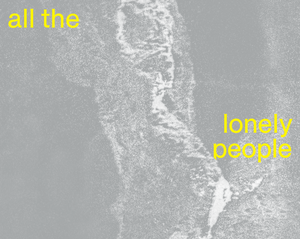
Information
In Loving Memory of Kaari Upson (1972 – August 18 2021)
Saâdane Afif, Vajiko Chachkhiani, Louisa Clement, Lauren Halsey, Annika Kahrs, Susan Philipsz, Anri Sala, April Street, Thomas Struth, Andrea Zittel
The exhibition, curated by Berlin based Nana Bahlmann, examines the ancient figure of the hermit against the backdrop of the current pandemic. The show presents examples of loneliness, melancholy, and longing, as well as physical and mental withdrawal. Some of the works by former Villa Aurora fellows and Los Angeles-based artists, have been created during periods of personal isolation, others have been newly conceived for the exhibition. Before L.A., "all the lonely people" was shown in Berlin at silent green in autumn 2021.
"all the lonely people" makes the experience of isolation and solitude visible. In doing so, the artworks take up traditional motifs associated with hermitage— retreat into nature, contemplation, and the dualities of inside and outside, exchange and silence, exclusion and trauma—and apply them to some of today’s urgent questions. They offer new perspectives on loneliness in the digital age, off-grid self-sufficiency, and imaginary places of refuge in the midst of gentrification and systemic oppression.
The selected works explore the motif of the hermit through photography, video, sculpture, sound, and installations: Vajiko Chachkhiani's video Life Track presents an impressive image of a physically and mentally isolated man whose loneliness takes place in the midst of our society, yet remains invisible. Louisa Clement's Representative, a lifelike self-portrait of the artist as a "Real Doll," thematizes the solitude of lives lived increasingly online and the alienation from oneself experienced when virtual avatars become noticeably distinct from reality. Thomas Struth's Vacuum Chamber, JPL, Pasadena and GRACE-Follow on Bottom View, IABG, Ottobrunn depict metaphorical, yet real places of hermetic isolation and evoke notions of boundless distance, expanding the idea of alienation to outer space. Bahlmann's exhibition toggles between nature and artificiality, as in the works of Annika Kahrs and Andrea Zittel. In Playing to the Birds, Annika Kahrs revives artistic echoes of retreating into nature and shows the attempt to overcome its solitude through music and communication across species. Andrea Zittel’s Wall Sprawl (Next to Las Vegas Bay) – aerial photographs of fringe areas where the wideopen desert meets largescale urban developments montaged into an ornamental, all encompassing wallpaper – depicts the encounter between the natural world and civilization and will cover almost the entire exhibition space, framing the exhibition as a whole. April Street's Still Life at 12 o'clock references nature as an imagination and creates a fantastic landscape where physical reality and the artist’s inner world are united into a single pictorial plane, while Lauren Halsey imagines the collective refuge of many marginalized groups in the artist's native South Central LA, In Trees and Flowers Suzan Philipsz lends her voice to the fear of the outside experienced during isolation, whilst Anri Sala's early video work Uomoduomo captures the isolated existence of an unhoused person, forced to live on the fringes of society. In a new work, Saâdane Afif explores strategies of shared authorship in the context of artistic self-encounter.
The exhibition is accompanied by a supporting program of films, readings, talks, performances.
Participants
Nana Bahlmann, Curator: "Being alone has taken on a completely different meaning in the long months of lockdown. Artists have some tools to offer in dealing with isolation, since distance is an essential part of artistic positioning towards the world. Art transcends loneliness by making it visible, interpreting it, and allowing the opportunity to share that experience, and that's what we're trying to do with this exhibition."
Heike Catherina Mertens, Executive Director VATMH: "For many artists, Villa Aurora is a place of retreat and contemplation, similar to a hermitage, where inspiration for new things emerges from a distance. For writers and journalists who are threatened in their homeland, it is at the same time - as it was for Marta and Lion Feuchtwanger in 1943 - a place of refuge, a sanctuary. We wanted to highlight these aspects with an exhibition on the occasion of the 25th anniversary of the house as artist’s residence, reinforce the exchange between the art scenes in Los Angeles and Berlin."
Partners
The exhibition is generously supported by the German Federal Foreign Office, the Berlin Senate Chancellery, the Friede Springer Foundation and a private patron.
The Los Angeles version of the exhibition was further made possible through support from the Andy Warhol Foundation for the Visual Arts and the LA Arts Recovery Grant.
LAXART is a nonprofit visual art space that promotes developments in contemporary culture through exhibitions, publications, and public programs. LAXART believes that contemporary art is a means of understanding key issues of our time with all their inherent contradictions. Contemporary art assumes many forms. Rather than provide answers, it raises questions. Through a range of offerings, LAXART contextualizes contemporary art both socially and art historically. LAXART’s programs are free and designed to be accessible to the general public.
Reading and Conversation: I've been Walking
Villa Aurora (520 Paseo Miramar, 90272 CA)
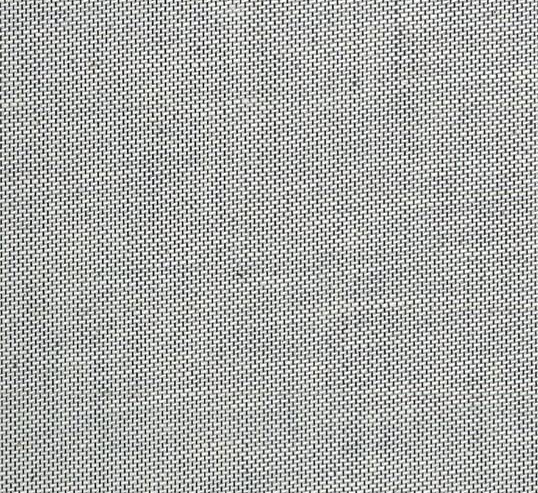
Information
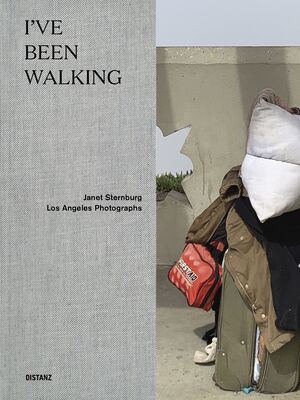
Sternburg donned a mask and gloves and ventured out to explore the city streets, taking photographs to capture her journey through the altered landscape. "For a while I walked through Los Angeles’ empty streets, seeing mostly what was desolate," Sternburg writes. "Then I started to see a poetry that I hadn’t always seen in more populated times." In the following months, signs and traces of life appeared throughout an urban environment that had once seemed frozen in time. I’ve Been Walking applies Sternburg’s attention to perception, memory, and layered experience to the unprecedented pandemic year. Sternburg’s ability to notice and communicate these nuances of sensation presents her viewers with an opportunity for deep reflection on the meaning and metaphor of each image. Although many of its photographs have no human figures, I’ve Been Walking expresses profound humanity, gesturing toward the social and personal resonances of the 2020 shutdown. "I walked photographing what I’ve come to think of as a kind of fullness — an enlargement of the senses that can be found in the midst of emptiness," Sternburg says. "I do not mean to turn the griefs and losses caused by COVID-19 into artistic gain. I do mean that we are enlarged when we become part of the landscape of all of us." Janet Sternberg will be in conversation with Boris Dralyuk, editor-chief of the Los Angeles Review of Books.
Participants
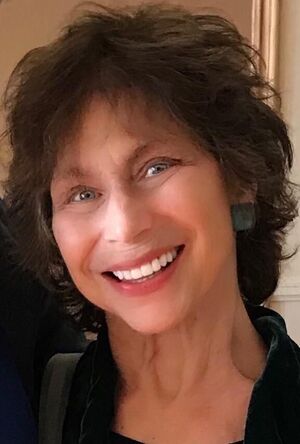
Janet Sternburg is a fine art photographer, a writer of literary books, a maker of theatre and films, and an educator. Since 1998 when she began taking photographs, her work has appeared in Aperture (2002), followed by The Utne Reader ("A New Lens," 2003), which selected her as one among forty international artists and writers who "with depth, resonance, ideas and insights, challenge us to live more fully,". A 2016-17 monograph of her photographs, Overspilling World: The Photographs of Janet Sternburg, was published by Distanz Verlag (Berlin) with a Foreword by Wim Wenders in which he writes, "Photographers don’t have eyes in the back of their heads. Janet Sternburg does." Her literary books include the two volumes of The Writer on Her Work, (W. W. Norton, 1981 and 1991). Other critically praised books followed, among them Phantom Limb (University of Nebraska American Lives Series, 2002) about which Bill Moyers has written "Janet Sternburg has found the perfect metaphor for the ultimate inevitabilities of life." This hybrid of personal story, essay, and history was followed by White Matter (Hawthorne Books, 2016); in a review published in Forbes, Sternburg is described as "using all the skills at her disposal, the sensitivity, precision and lyricism of a poet, the hard edges of a photographer, the intelligence and scholarship of an academic, to plumb the many facets of this story." Her play, The Fifth String (2011-2014) about pre– and post–Expulsion cultures, produced in Berlin, Pact Zollverein Essen, New York, and Los Angeles. Sternburg lives in Downtown Los Angeles’ Little Tokyo, and San Miguel de Allende, Mexico. In 2016 she was co–recipient of the REDCAT AWARD, given to individuals who exemplify the creativity and talent that define and lead the evolution of contemporary culture. Her newest book (October, 2021) is I’ve Been Walking: Janet Sternburg Los Angeles Photographs.
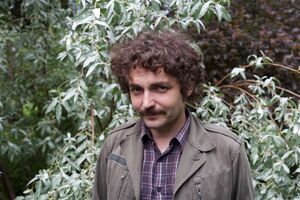
Boris Dralyuk is the editor-in-chief of the Los Angeles Review of Books. He is co-editor (with Robert Chandler and Irina Mashinski) of The Penguin Book of Russian Poetry, editor of 1917: Stories and Poems from the Russian Revolution and Ten Poems from Russia, and translator of Isaac Babel, Maxim Osipov, Mikhail Zoshchenko, and other authrs. His poems have appeared in The New York Review of Books, The Hopkins Review, The New Criterion, and elsewhere, and his collection My Hollywood and Other Poems will be published by Paul Dry Books in 2022.
Exhibition: 6 Friedberg-Chicago
Dortmund
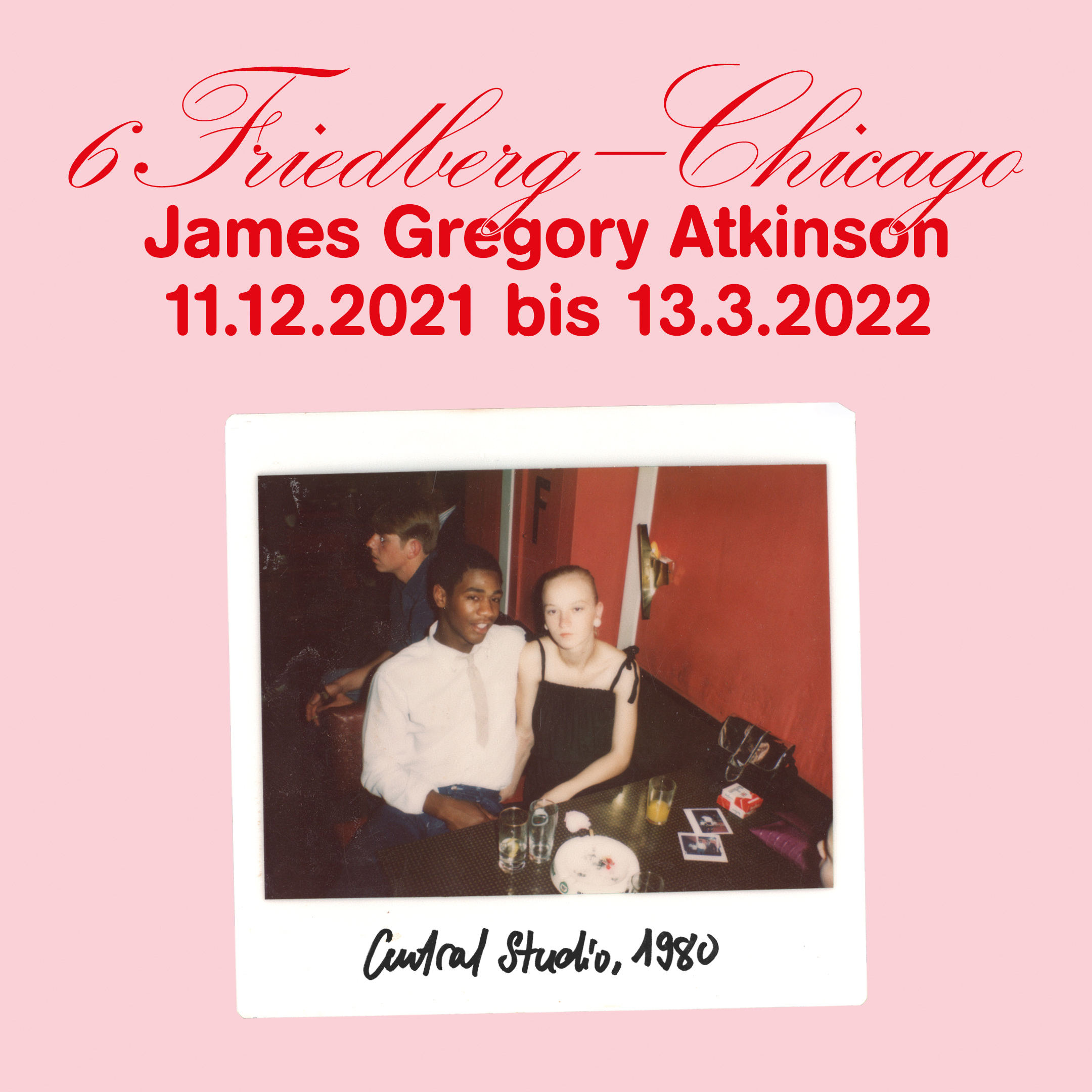
Information
6 Friedberg-Chicago, the first institutional solo exhibition by German-American artist James Gregory Atkinson, illuminates a part of African-American-German history on a personal, social, and political level. In the exhibition, the artist presents his new film of the same name, which was shot at Ray Barracks, a former US Army Base in Friedberg. It was made in collaboration with dancer and choreographer Josh Johnson and harpist and singer Ahya Simone, among others. The exhibition also presents a non-linear archive that explores the history of Black soldiers in Germany and their descendants, which Atkinson developed in collaboration with Eric Otieno (sociologist and political scientist) and Mearg Negusse (art historian).
Participant
James Gregory Atkinson (b. 1981 in Bad Nauheim, Germany) studied with Douglas Gordon at the Städelschule, Frankfurt, and received fellowships and artist residencies at Villa Aurora, Los Angeles (2016), the Jan Van Eyck Academy, Maastricht (2017), and a studio fellowship from the Hessische Kulturstiftung in New York (2018).
Partners
An exhibition by Dortmunder Kunstverein sponsored by the Alfried Krupp von Bohlen und Halbach Foundation as part of the "Catalogs for Young Artists" grant.
The film production has been supported by Hessische Kulturstiftung, Goethe-Institut and Villa Aurora.
*Dortmunder Kunstverein e.V. was founded in 1984 as a civic initiative as a non-profit association for the promotion and mediation of contemporary art in Dortmund. Since 2014, it has been located in the immediate vicinity of the Dortmunder U - Center for Art and Creativity, thus helping to strengthen this cultural center for contemporary art in Dortmund.
Further information about the exhibition and the supporting program can be found here (in German only).




